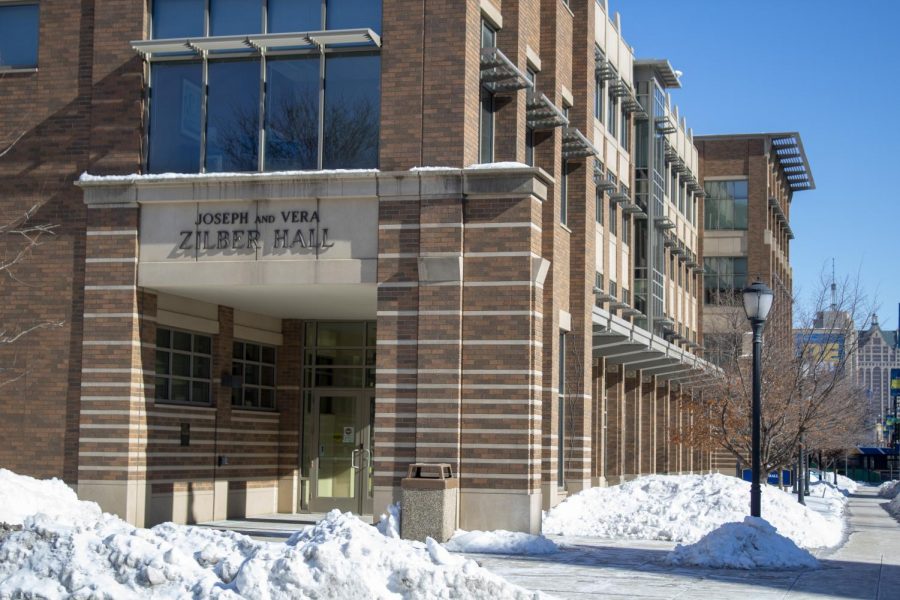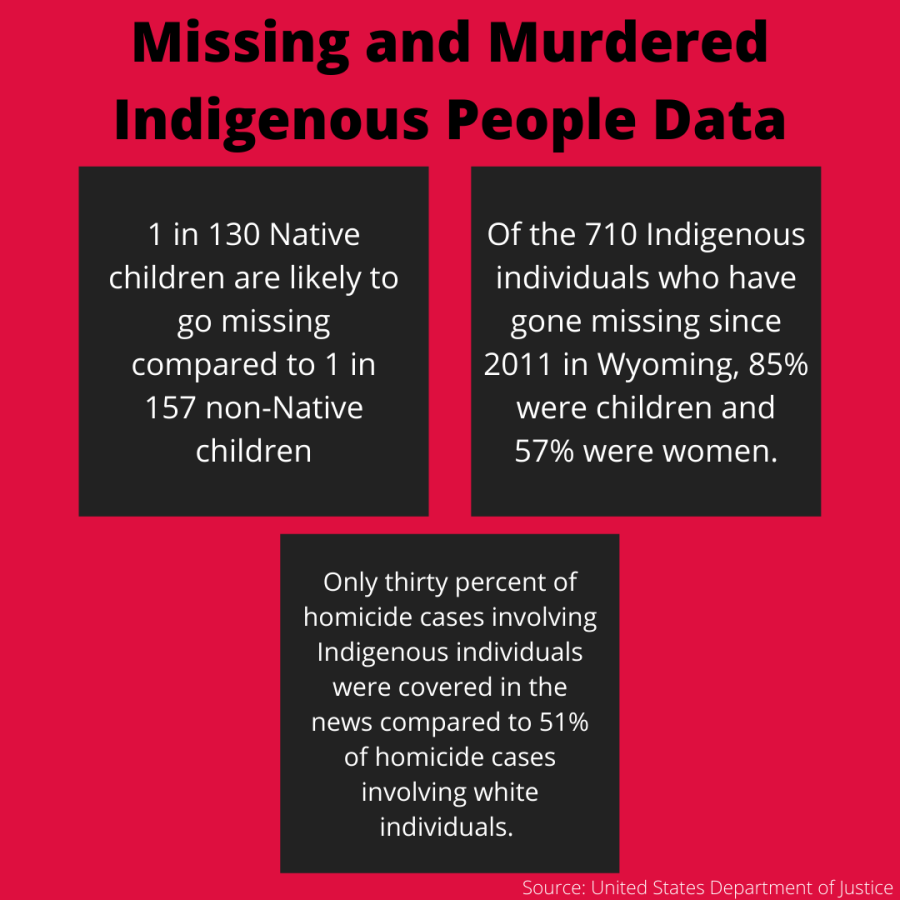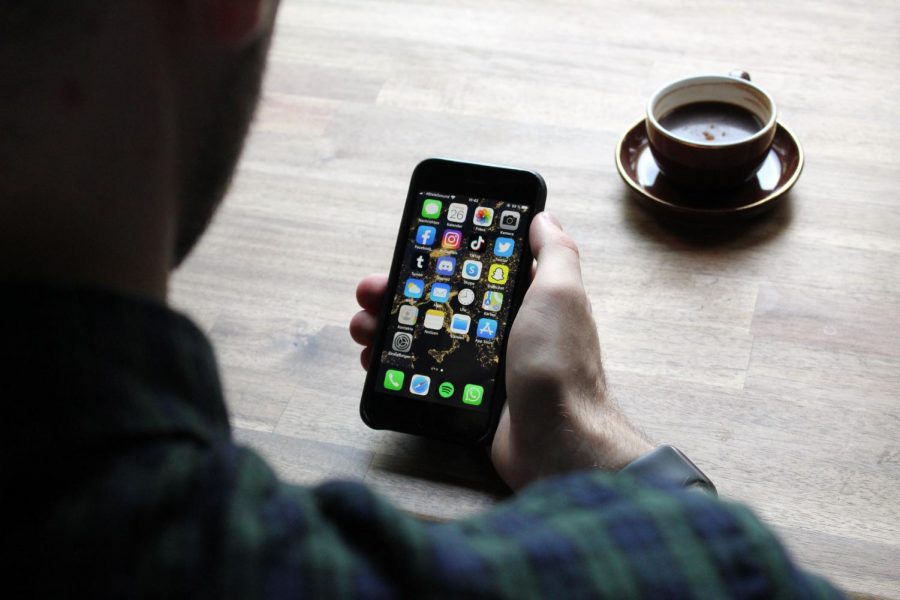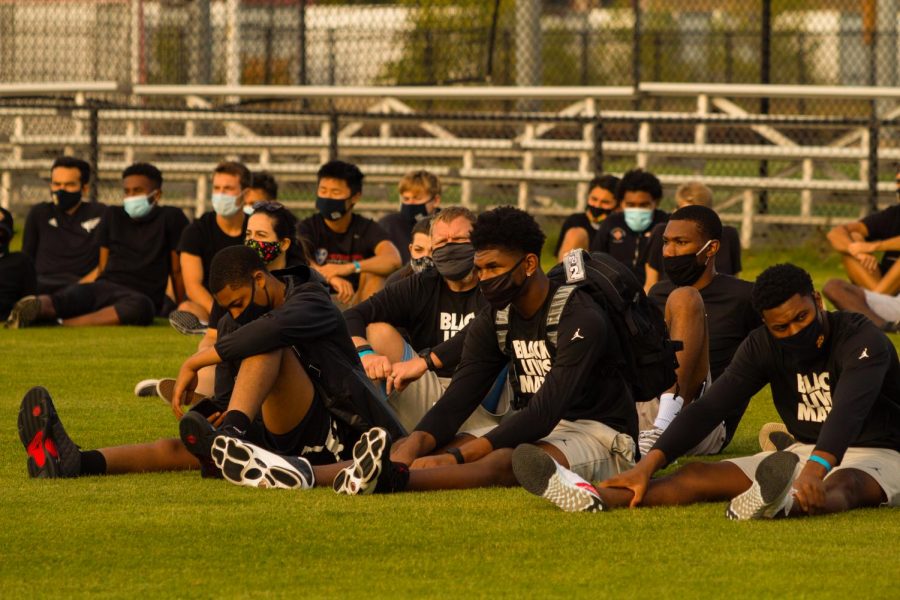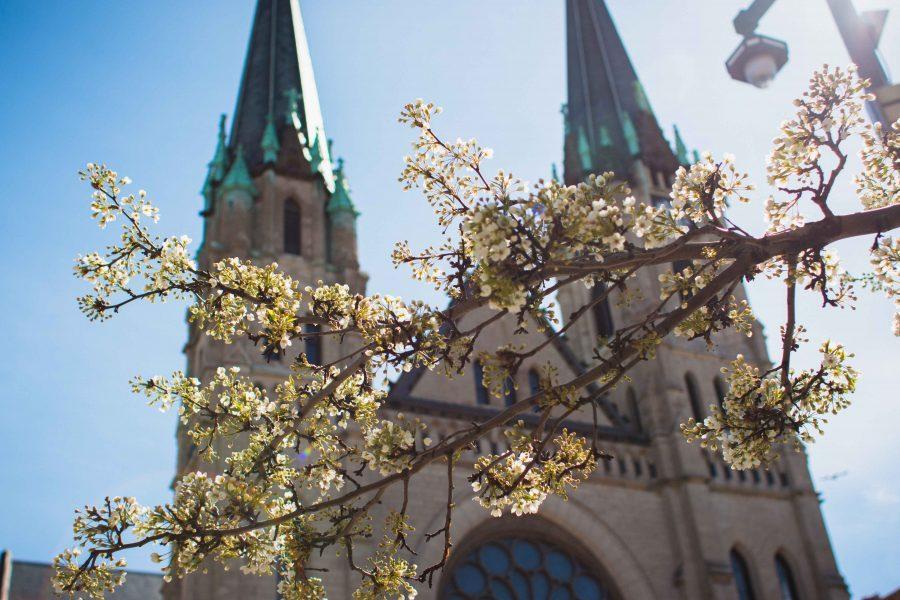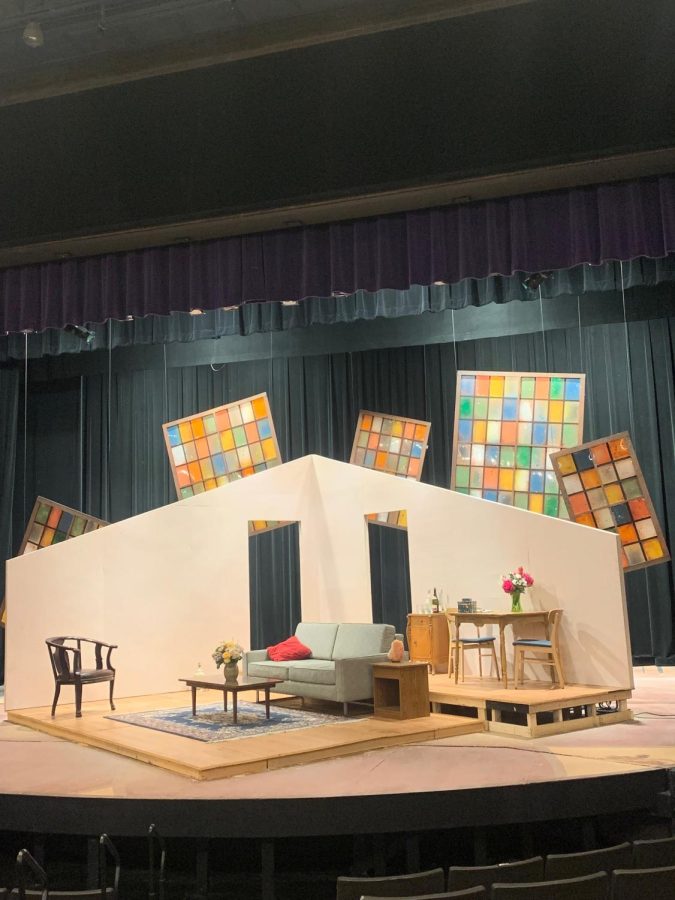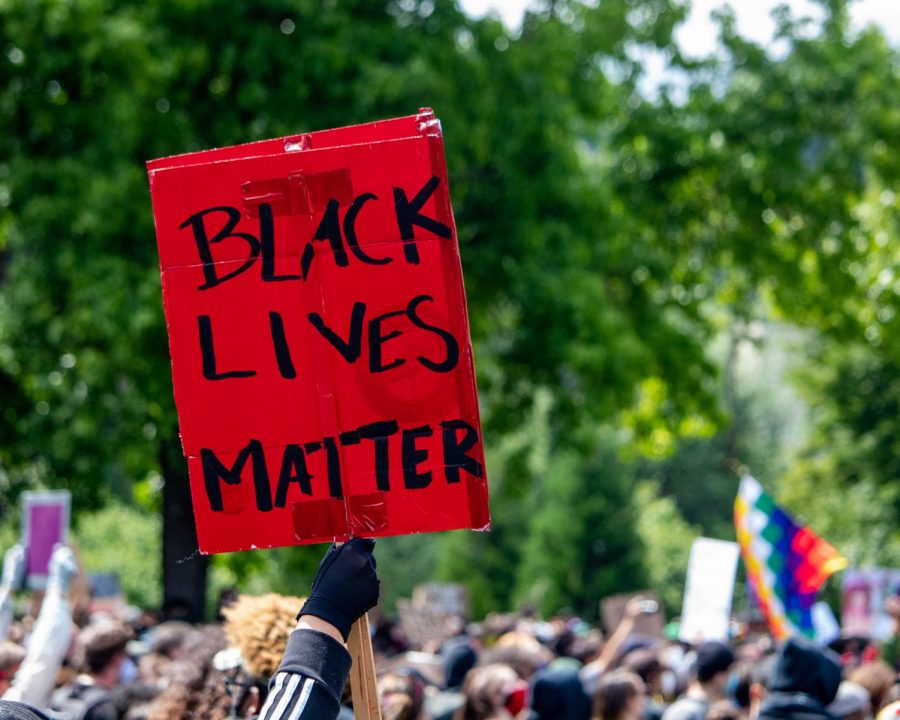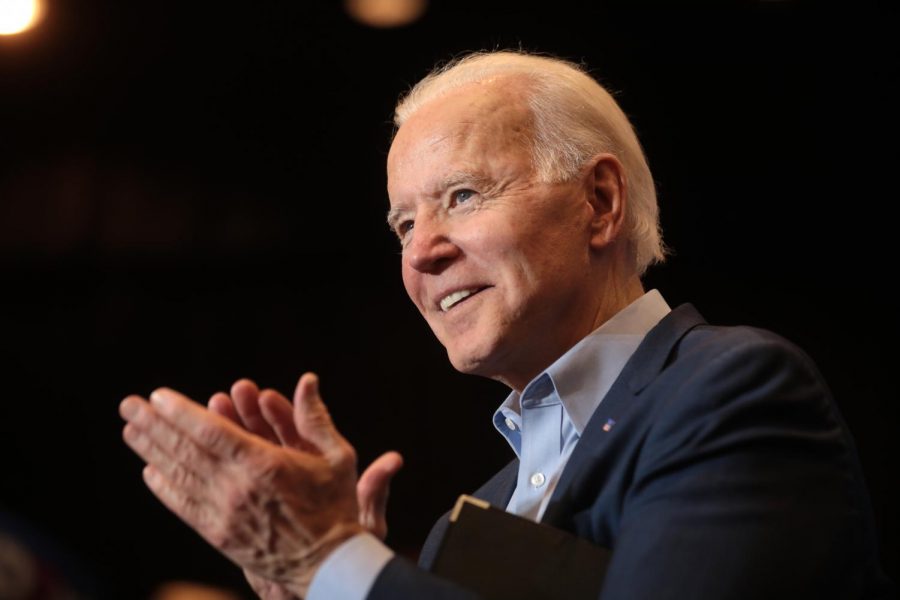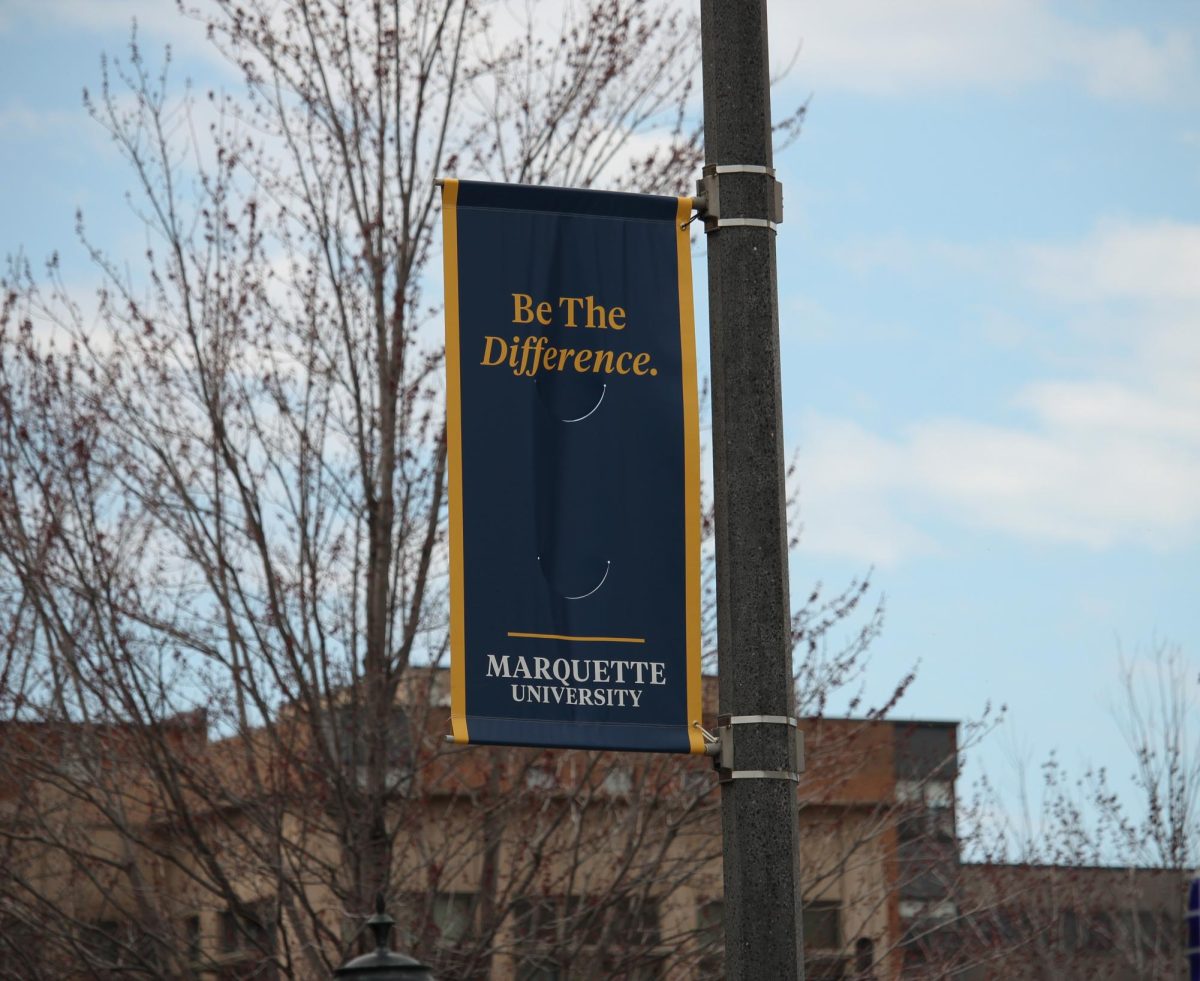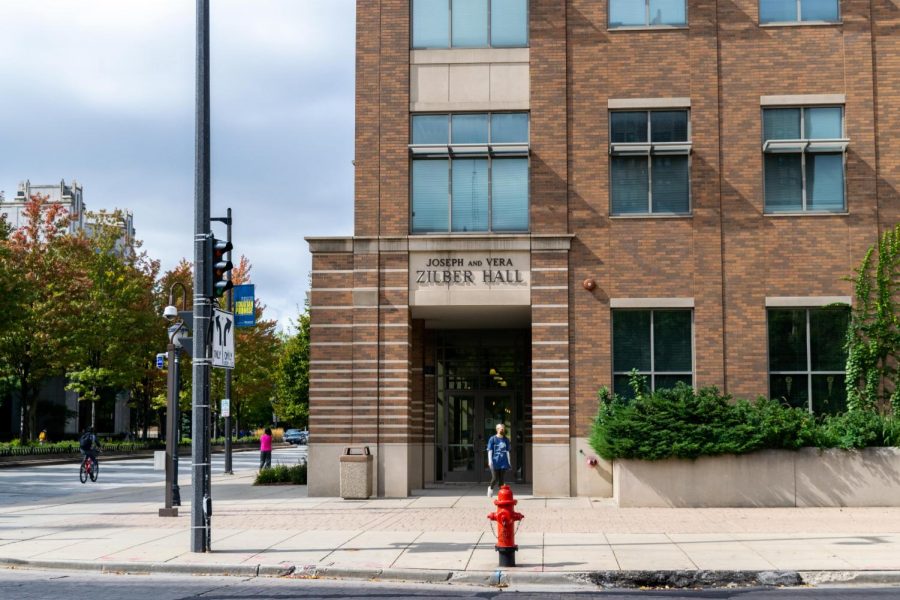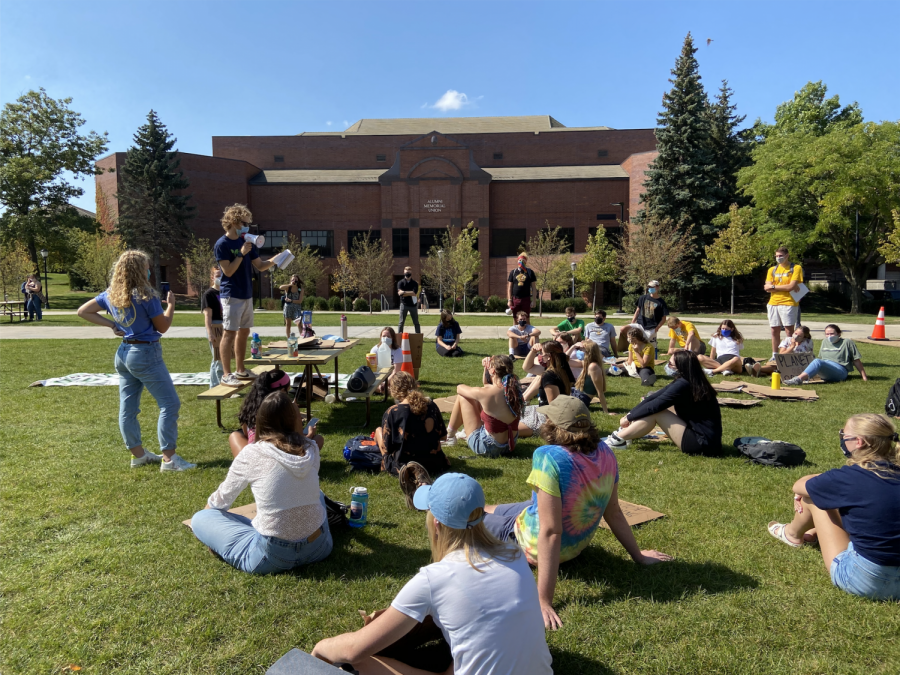Marquette University cannot expect the campus climate to improve if it will not implement ways to better it. While the university continues to commit to anti-racism and promise to better the experience of diverse students on campus, the university cannot keep adding new initiatives if it cannot address the current climate on campus. New initiatives cannot be the only solution to fix the current problems.
A video of two current students using racial slurs surfaced online Monday night. The university said that one of the individuals involved was a student-athlete, who has since been removed from the team. An athletics spokesperson said the athlete was removed from the men’s lacrosse team.
This is the second public action taken by the university regarding an individual affiliated with a Marquette sports team in response to offensive material being posted. The university rescinded a women’s lacrosse commit’s offer June 1 after posting an offensive message on Snapchat about the death George Floyd.
The university should be commended for its quick decision to remove the student from the team. Marquette cannot be a place for such hate and intolerance.
Despite the university’s quick decision, initially there was little direct communication to the Marquette community about removing the student from the men’s lacrosse team.
University President Michael Lovell and Provost Kimo Ah Yun shared a message about the recent incident first on a Feb. 17, on the university’s Instagram story. That same message was later shared in a university news release the same day.
The message said the Division of Student Affairs initiated a student conduct investigation of both students, and that due to federal privacy laws, Marquette will not be releasing the name of the students.
Though the names of the students circulated online, the Marquette Wire is working to independently identify and confirm the students in the video. At this time, the Marquette Wire is not naming students.
“Racism and discrimination have no place on our campus,” the message said. “We stand with all our university leaders in our pledge to our students — all students, and especially our BIPOC students — to work with you to overcome injustice and ensure that our university remains anti-racist. We also stand with you to heal and in the work that lies ahead.”
When the Marquette Wire initially reached out to the university for a comment, a university spokesperson said in a statement, “Late on the evening of Feb. 15, Marquette University was notified that two current students used racist language in a video posted to social media … (and) the Division of Student Affairs immediately initiated a student conduct investigation, the results of which will be confidential due to FERPA privacy law.”
The university should have been and needs to be more proactive and transparent. Sharing the events of the video and holding the students accountable needed to be communicated to the campus community.
Students have the option to submit an incident bias report if they have experienced or witnessed a biased incident. When the incident occurred, the incident bias reporting form included a message at the top that asked students not to make any reports about the Feb. 15 incident unless they had new information, saying that the university had received a high number of duplicate reports, which could make it more difficult to address other complaints.
Lovell and Ah Yun’s first message was two days later, after the video surfaced. Their message did not provide new information to the community. How are students supposed to know what is new, and what is not, in order to fill out a bias incident report?
Additionally, it is disappointing that sharing offensive and racially charged comments on social media has become a pattern of problematic behavior among Marquette athletes and students. Though we are not ignorant to the fact that racism exists on campus, not much seems to be getting better.
Lovell announced several programs and initiatives in his Feb. 4 presidential address that are aimed to support Black students, and while these are great, positive steps to supporting Black students in the future, Marquette is not addressing the behavior of current white students now.
Holding a couple students accountable is not enough. Racist words and behaviors among students is a recurring problem.
Lovell’s son withdrew from Marquette before the beginning of the fall 2020 semester after posting multiple racist and sexist posts on different Instagram accounts.
Additionally, a Marquette student was expelled before the fall 2018 semester after sharing a photo with racial overtones with students the previous spring. The photo is of four white males, two of which are holding fake guns and one who is holding a Black doll.
The university cannot continue to preach it is anti-racist, or strive to be better for minority students, unless it takes deliberate steps to support those words. Marquette needs to be more clear that racially offensive language and behavior is unacceptable and will be met with consequences. Moreover, the university must be immediate with its communication to the Marquette community when these incidents happen and denounce them.
Marquette should and needs to require accepted students to complete anti-racism training as soon as they arrive on campus, similar to Red Watch Band training. Red Watch Band is a mandatory bystander intervention training for first-year students and focuses on bystander theory, alcohol 101, how to intervene and presents students with real-life scenarios. Requiring students to complete anti-racism training could hold students accountable if there are incidents of using racial slurs or posts on social media.
Even before that, the university must be more thorough in recruiting students and athletes to Marquette, such as getting to know them better and making sure they demonstrate cura personalis. This could be done through checking social media accounts and conducting thorough interviews.
Living up to being truly anti-racist requires the university to know truly who their current students are and what kind of behavior they are conducting.
Out of 11,550 undergraduate and graduate students, there are only 3,022 students of color, according to the Office of Institutional Research and Analysis for the fall 2020 semester. Additionally, out of 2,811 faculty and staff, there are only 601 faculty and staff members of color, as of the fall 2020 semester.
With that said, all of the responsibility should not be put on people of color. Marquette must make the effort to educate white students and faculty and staff members to be allies and support the Black community. This must come from Lovell and other white administrators, rather than placing all of the responsibility on administrators of color.
If Marquette is to truly address racism on campus, it has to come from the bottom-up, through students, faculty and staff taking training and incorporating anti-racism curriculum, and from the top-down through recruitment and holding students more accountable.
The university cannot support students of color without following through with these commitments.
Editorial topics by the Marquette Wire are decided at weekly meetings between members of the executive board. The editorial is crafted with leadership by the executive opinions editor. The executive board consists of the executive director of the Wire, managing editor of the Marquette Tribune, managing editor of the Marquette Journal, general manager of MUTV, general manager of MUR and nine additional top editors across the organization.

